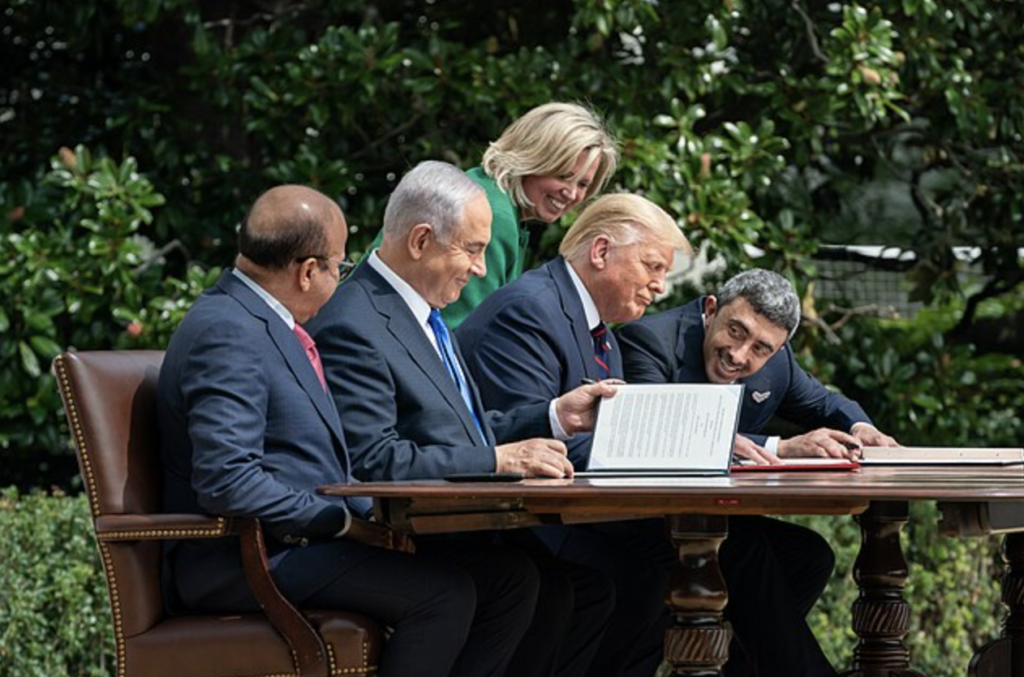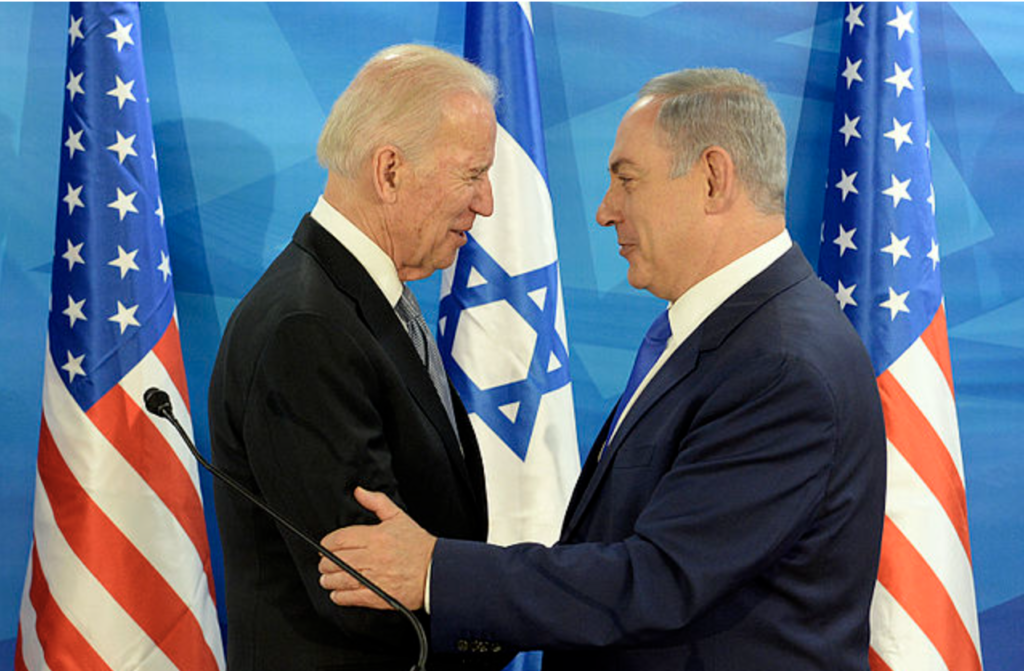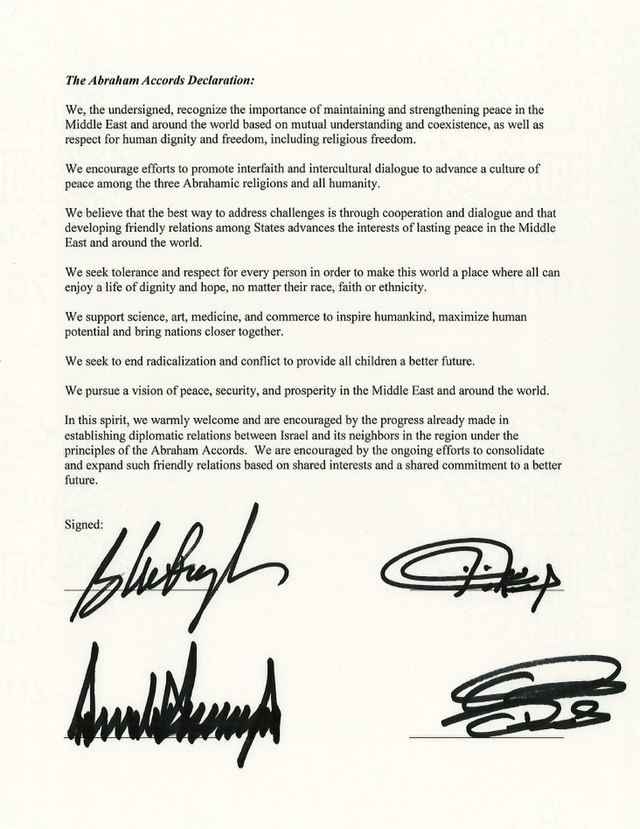Arab Regimes Could Freeze Abraham Accords and Challenge US Presence

By: Ghassan Rubeiz / Arab America Contributing Writer
Massive Street demonstrations return to Israel demanding change. Public pressure on Netanyahu’s government is rapidly rising, but his cabinet is still determined to try to defeat Hamas in overcrowded Rafah- in Gaza, to widen the battlefront with Hezbollah in Lebanon and to drop bombs on leaders of Iran’s military in Syria. As a result, the rift in military strategy between the White House and Jerusalem widens. The risk for a regional war has increased over the past few days.
In last week’s column, I expressed regret that the long and tough speech of the top Jewish American Senator, Charles Schumer, (which called for a change of direction in Israel’s conduct in the Gaza war and its policies on Palestine) has been ignored by Jerusalem’s war cabinet.
This week, we observe a continuation of this trend: Israel acts out as the world’s spoiled child. The United Nation Security Council Resolution of March 25, calling for an immediate ceasefire and urgent provision of humanitarian aid to a starving population, has been disregarded by Netanyahu. Washington’s abstention in this resolution has not moved the needle in confused and confusing US policy toward Israel. Israel’s Defense Forces continue to attack crowded communities and health facilities. The fatalities rise in Gaza.
Growing evidence of President Biden’s hypocrisy is disheartening. In the Washington Post John Hudson reports that: “The Biden administration in recent days quietly authorized the transfer of billions of dollars in bombs and fighter jets to Israel despite Washington’s concerns about an anticipated military offensive in southern Gaza that could threaten the lives of hundreds of thousands of Palestinian civilians.” (The Washington Post)
With the continued backing of the US, Israel shows no sign of responsibility in its treatment of the Palestinians. Arab leaders have not taken a forceful role in support of the Palestinians. Beyond mediating the negotiations between Hamas and Israel for the exchange of captives, Arab officials have not done enough to help. This is one more reason that Arabs and Israelis are still focused on trading hostages for prisoners rather than on tackling the causes of a century-old political crisis. Why do Cairo and Riyadh look so inept?

Arab regimes are insecure domestically. The political insecurity of Arab rulers explains their passivity. (Middle East Eye) Not all Arab rulers are famous among their people. They are uncomfortable with grassroots movements. Islamist organizations constantly challenge Arab governments. The popularity of political and religious movements in the Middle East is associated with a long history of governments co-opting religious leaders. When religious movements get too intense, before they turn against the regimes, they are crushed. Egypt and Saudi Arabia have the most to fear from the Islamists they have brutally suppressed. Arab rulers remain in the background in Gaza. Some move closer to Israel, and others to Iran.
In search of legitimacy and security, Arab governments have learned the hard way to get along with Israel. Egypt and Jordan signed peace treaties in 1979. In recent years, the UAE, Bahrain, and Morocco have signed the Abraham Accords, which normalize relations with Jerusalem. The US has been central to these top-level peace deals, which remain unpopular among Arab citizens. This week, the White House is even more eager to sign a deal with Saudi Arabia than it is for Netanyahu. (msn.com)
Neither Israel nor the US can guarantee the security of Arab regimes whose people are not satisfied with their rulers. Seeking additional safety, Arab Gulf States have reopened diplomatic channels with Iran over the past few years. Arab Gulf relations with Iran are “friendly” but cold. Meanwhile, Egypt and Saudi Arabia bet on the US to receive maximal benefits; they keep their distance from Tehran, the center of Shiite power.
The Arab states remain committed to a complex network of economic and political ties with Washington and Jerusalem; it is hard for insecure Arab rulers to challenge Israel or the US’s policy toward Gaza and the West Bank.
Threats to withdraw from Accords with Israel:
The least Arab leaders can do is to be assertive in their demands for a ceasefire in bleeding Gaza. Bahrain, Morocco, and the UAE could threaten Jerusalem by freezing the Abraham Accords if Israel continues to commit massacres. If Israel does not respond, the Gulf States and Morocco can consider terminating these agreements. Similarly, Egypt and Jordan could threaten to freeze diplomatic relations with Jerusalem.
The threats of Arab states to withdraw from commitments may not be sufficient to alter Israel’s hard-line position on the rights of Palestinians. To help influence Israel to reexamine its rejection of negotiating a stable future with Palestinians, the Arab states must modify their shelved peace plan, a plan based on the establishment of a separate Palestinian state: a two-state solution.
A fresh look at the Arab Peace Initiative is due. The 2002 Arab Peace Initiative, API, needs to be updated by the Arab League. Israel has made conditions for a two-state solution nearly impossible. With continuously expanding Israeli settlements all over the West Bank and East Jerusalem, a separate Palestinian state cannot be envisaged. A confederation of two nations existing within a common border would preserve the separation between the majority of Palestinians and the majority of Israelis. A confederacy would allow the co-existence of two parallel nations and joint security for all residents within a single state.
If the US or the United Nations insists on keeping the two-state solution as a platform for peace, it is their responsibility to show how Israeli settlements can be dismantled. Otherwise, talking about advocacy for a two-state solution while continuing to ignore the occupation is immoral.

Questioning US military presence:
Had the Arab states been sincere in their support of the rights of the Palestinians, they would have questioned the massive US military presence in the Arab world. Regrettably, the leaders of the Arab Gulf states feel that hosting US army bases offers them a sense of pride and security. But for how long will the people of the Gulf feel protected by a military that mainly serves Israel and US superpower interests?
Requirements for Israel’s integration into the region:
Israel’s desire to expand the Abraham Accords is an opportunity for an honest discussion of a sound path for regional stability. The Arab world should welcome Israel’s yearning to integrate into the region. However, regional peace should be inclusive and based on democratic norms. The Abraham Accords will not last if they are seen as a strategic pact between Sunni Arab countries and a Jewish State. An agreement along sectarian lines would be easy to dismiss as a mere attempt to undermine Shiite interests in the Middle East. No peace can last if it is not based on trust, equality, freedom, and mutual respect. Iran should not be left out of this futuristic regional discussion.
Arab regimes are not expected to suddenly challenge Jerusalem at this point in time. The so-called “day after,” the day the Gaza crisis is settled, seems illusory. All the major players in this crisis are unwilling to face facts, respect history, and comply with international law. Israel remains too comfortable with the occupation of Palestinian territories; the US is not sufficiently alarmed by its complicity in the war of Gaza, and the Arab states are preoccupied with their domestic insecurity. Regrettably, Palestinians have been paying the price for colonial politics for over a century. Lasting peace in the Middle East has to be regional and inclusive.
Ghassan Rubeiz is the former Middle East Secretary of the World Council of Churches. Earlier, he taught psychology and social work in his country of birth, Lebanon, and later in the United States, where he currently lives. For the past twenty years, he has contributed to political commentary and delivered occasional public talks on peace, justice, and interfaith subjects. You can reach him at rubeizg@gmail.com
The views and opinions expressed in this article are those of the author and do not necessarily reflect the position of Arab America. The reproduction of this article is permissible with proper credit to Arab America and the author.
Check out our Blog here!


